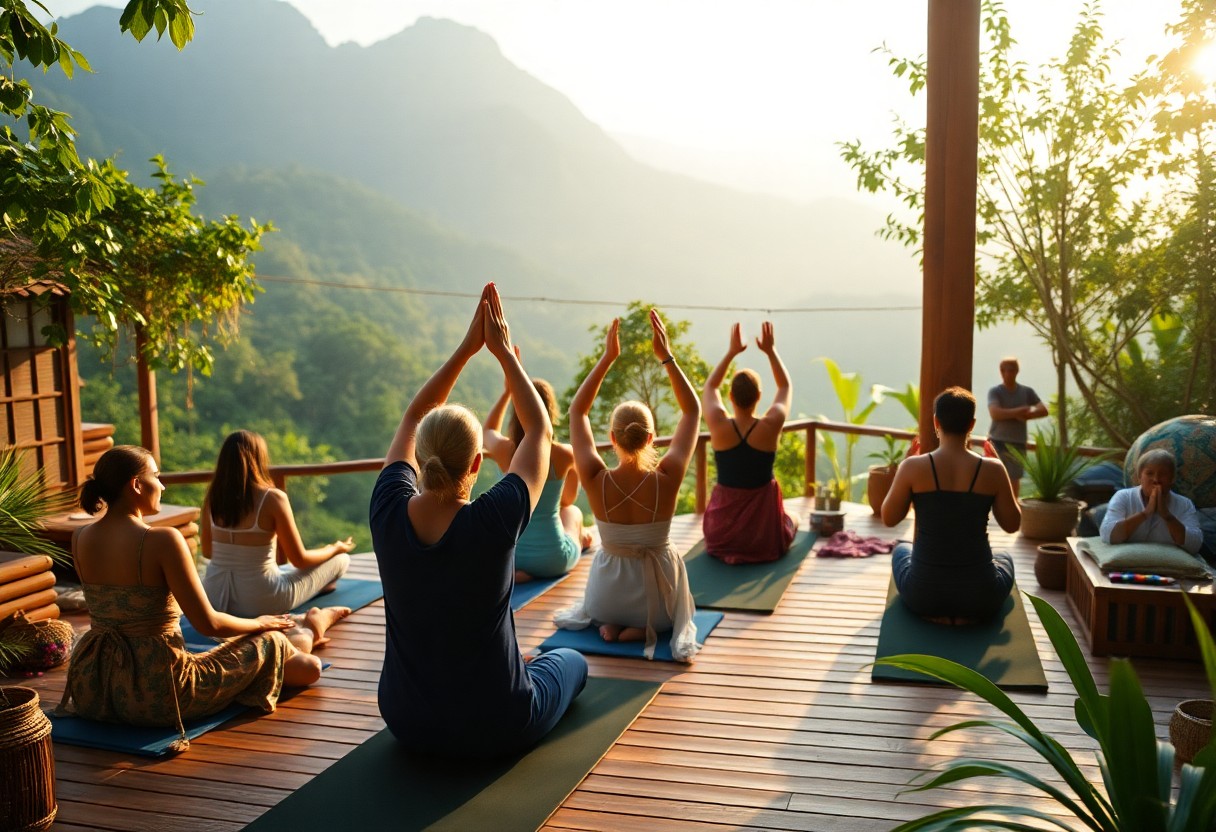Over the past decade, you may have noticed an increasing trend towards wellness tourism, where travelers seek experiences aimed at improving their overall health and well-being. This surge not only benefits visitors through mental and physical rejuvenation, but it also poses risks to local cultures as they adapt to accommodate these new demands. In this blog post, you will explore both the positive transformations and potential drawbacks, helping you understand how your travel choices can impact local communities and the cultural fabric they represent.
Understanding Wellness Tourism
While wellness tourism has gained immense popularity in recent years, it encompasses a wide range of experiences aimed at enhancing your physical, mental, and spiritual well-being. As you seek rejuvenation and healing, this trend intertwines with various local cultures, ultimately transforming both your personal journey and the communities you visit.
Definition of Wellness Tourism
Understanding wellness tourism involves recognizing it as a travel trend that prioritizes holistic health and well-being. It encompasses activities such as spa retreats, yoga sessions, and healthy eating options, enabling you to immerse yourself in environments specifically designed for relaxation and rejuvenation.
Growth Factors of Wellness Tourism
An array of factors contribute to the rapid expansion of wellness tourism. Key elements influencing this growth include:
- Increasing awareness of the importance of mental and physical health
- Rise of social media showcasing wellness experiences
- Growing demand for sustainable and authentic travel options
Knowing how these elements converge can help you navigate and embrace the benefits of wellness tourism.
A more profound understanding of wellness tourism’s growth factors reveals how interconnected your well-being is with global trends. The increased focus on holistic health and the impact of technology play significant roles in shaping your travel behaviors, aligning them with your overall lifestyle ambitions. Furthermore, immersive experiences can help you disconnect from daily stresses and reconnect with nature and community, promoting a more balanced life. Knowing how to leverage these influences will enhance your travel experiences while fostering respect for local cultures.
Impact on Local Cultures
There’s a growing concern about how wellness tourism shapes local cultures. As travelers flock to destinations seeking rejuvenation, their influx can lead to the commercialization of traditional practices, often detracting from their authentic significance. This transformation can create a tension between preserving cultural heritage and catering to the demands of tourists, ultimately leading to altered perceptions of what wellness truly means in various locales.
Economic Effects
Economic impacts of wellness tourism can be substantial, providing new job opportunities and boosting local economies. However, this influx may lead to a dependency on tourism revenue, making communities vulnerable to economic fluctuations. As a result, local businesses may prioritize tourist needs over resident concerns, risking the erosion of traditional livelihoods and long-standing community structures.
Cultural Exchange and Adaptation
Little do you know that wellness tourism also fosters cultural exchange, bringing together diverse practices and philosophies. While this can enrich local cultures, it can also trigger adaptation, leading to the modification of ancient traditions to appeal to travelers. Your understanding of wellness may expand through this exchange, but you should also be mindful of how it could dilute the essence of local customs.
With wellness tourism connecting you to different ways of life, you might experience a blending of practices, enriching your perspective on well-being. However, this cultural exchange can risk distorting traditional beliefs, as locals adapt their rituals to attract visitors. It’s vital to recognize the potential for positive interactions while being aware of the dangers posed by commercialization. By respecting and honoring local traditions, you can help ensure that the rich cultural heritage persists, even as wellness tourism evolves.
How to Engage in Responsible Wellness Tourism
Clearly, engaging in responsible wellness tourism requires a mindful approach that respects local cultures and environments. You can start by choosing accommodations and activities that prioritize sustainability and community engagement. Look for wellness retreats that employ local staff, use natural resources wisely, and support local economy and artistry.
Tips for Travelers
Wellness tourism can beneficially impact local cultures when approached thoughtfully. Here are some tips to enhance your travel experience:
- Support local artisans and businesses by purchasing authentic goods.
- Choose eco-friendly transportation options when possible.
- Participate in cultural exchange activities that promote mutual understanding.
Recognizing your travel impact can lead to more enriching experiences for both you and the communities you visit.
Factors to Consider Before Traveling
Little details can significantly shape your wellness tourism experience. Before begining on your journey, reflect on these factors:
- Assess the local culture and customs to ensure respectful interaction.
- Evaluate the environmental sustainability of the wellness practices offered.
- Consider the potential impact on local resources and communities.
Recognizing these factors prepares you to make informed decisions that benefit everyone involved and enhance your overall wellness journey.
Consider diving deeper into the aspects that matter most to your wellness tourism experience. Inquire about the local cultural practices, ensuring you align with respectful engagement. Prioritize local traditional healing methods and activities that are authentic and community-centered. Research the ecosystem of the region to avoid practices that could harm local wildlife. Responsible tourism can lead to sustainable practices that enrich the local community. Recognizing your role as a traveler can profoundly impact the areas you visit.
Future Trends in Wellness Tourism
Not only are travelers seeking relaxation and rejuvenation through wellness tourism, but they are also driving a significant evolution in this sector. Expect to see a shift towards more holistic approaches that integrate environmental awareness, cultural immersion, and personalized experiences. As wellness tourism expands, it will increasingly reflect the values and desires of a conscientious traveler looking for authentic and meaningful connections.
Sustainable Practices
An emerging focus on sustainability is reshaping wellness tourism in profound ways. You will find that more destinations are prioritizing eco-friendly accommodations, organic food sources, and programs that support the local economy. By embracing these sustainable practices, you can not only enhance your wellbeing but also contribute positively to the communities you engage with.
Technological Innovations
The rapid advancement of technology is revolutionizing the wellness tourism industry. You are now able to experience virtual reality yoga classes, personalized wellness apps, and health-focused wearables that track your fitness and meditation. These innovations are designed to enhance your experience and make achieving your wellness goals more accessible and engaging.
Understanding how technological innovations are shaping wellness tourism allows you to stay ahead of the curve. From AI-driven personalized wellness plans that cater to your specific needs to wearable devices that monitor your health, these tools create a more immersive and tailored experience. As providers adopt smart technologies, you can expect seamless integration of wellness programs into your travel itinerary, making it easier to initiate on a journey of self-discovery and personal growth. The fusion of technology and wellness promises to elevate your experiences while ensuring that you remain engaged and connected to your health journey.
To wrap up
Upon reflecting on the rise of wellness tourism, you can see its multifaceted impact on local cultures. While it offers economic benefits and promotes cultural exchange, it also risks commodifying traditional practices. As you navigate this evolving landscape, consider engaging mindfully with local customs and communities, ensuring that your wellness experiences contribute positively to the places you visit and respect their cultural integrity. By doing so, you help foster sustainable tourism practices that honor both personal well-being and cultural authenticity.


